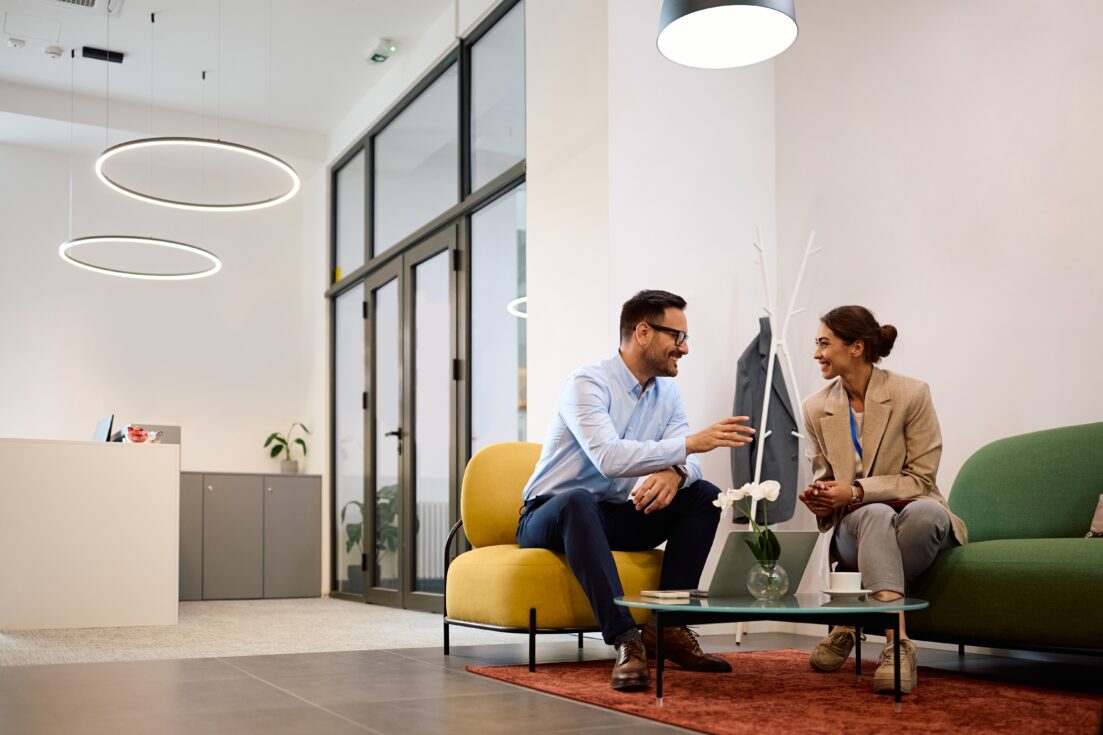
Hybrid working is no longer an exception, but a structural part of professional life. The benefits are clear. Employees value the flexibility, the absence of commuting, and the improved work-life balance. Organisations also reap the rewards: costs often decrease, while productivity increases. Yet as we gain in efficiency, another crucial aspect comes under pressure: the way we collaborate and learn.
Ten minutes before the meeting, quickly grabbing breakfast, sitting behind your laptop in jogging bottoms, while also sorting out your children’s meal — for many, this has become a familiar scene. Since the COVID-19 pandemic, working from home — and more broadly, hybrid working is no longer an exception, but a structural part of professional life.
Much informal learning and collaboration happens on the physical work floor — at the coffee machine, during a lunchtime walk, or through spontaneous brainstorming sessions. These moments not only foster connections between colleagues but also play an important role in professional development. In an online working environment, where face-to-face interaction is no longer the norm, it is precisely these spontaneous learning and contact moments that tend to disappear.
This presents organisations and teams with a new challenge: how do we create space for learning, connection, and collaboration when we see each other less often in person?
Hybrid working need not be a loss — as long as it is intentionally designed. In fact, the combination of remote and in-office work offers the chance to harness the best of both worlds: the focus and flexibility of working from home, alongside the social and learning-enriching power of physical collaboration.
At Elevate, we have fully embraced hybrid working as an integral part of our approach. Colleagues work remotely when it better suits their tasks or personal circumstances — for instance, to support concentration or to provide flexibility in caring for children. At the same time, we actively encourage in-person meetings, whether for project discussions or informal exchanges. This contributes to team spirit, enhances knowledge sharing, and fosters a healthy, future-proof work culture.
For Learning & Development, this means looking beyond traditional classroom training or lengthy e-learning programmes. The hybrid work model calls for flexible learning solutions: short, digestible learning moments that can be easily integrated into daily work. Digital learning platforms, interactive content, and guided self-study play a crucial role in this — as does facilitating remote collaboration between colleagues.
At Elevate, we design learning pathways tailored to this new reality. We focus on blended learning solutions, combining digital modules with live sessions (whether online or in person). We encourage informal learning through communities and team meetings, and ensure that learning content is easily accessible — regardless of where or when someone is working. By working closely with subject matter experts and using didactically grounded formats, we ensure that learning remains effective, relevant, and applicable across all work situations.
The way we work has changed for good. This requires a rethinking of how we learn and continue to develop. Organisations that see hybrid working as a structural element of their learning strategy not only build future-ready teams, but also strengthen innovation and internal cohesion.
The workplace of tomorrow is hybrid and so is learning. Those who are willing to invest in this build agile organisations with room for growth, connection, and long-term success.